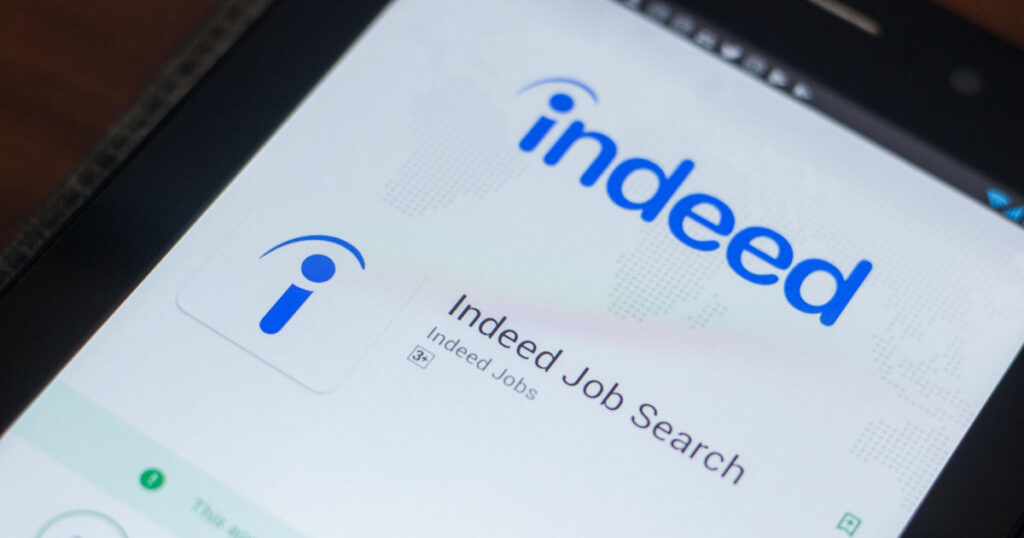Imagine getting a message that says “Indeed Not Selected by Employer” after applying for a job. It’s like a signal guiding you through the job hunt. This part is all about making sense of what this message really means and how you can turn it into a helpful tool for your job search journey. Let’s talk about the meaning behind these words to help you on your way to finding the right job.
What does ‘Indeed Not Selected by Employer’ mean in job applications?

When you see “Indeed Not Selected by Employer” in your job application, it means that the company decided not to move forward with your application.
This doesn’t necessarily mean you’re not good enough; it could be due to various reasons. Take it as a chance to think about how you can make your application better for the next job.
It’s like a helpful hint to improve and increase your chances of getting the right job in the future. Remember, everyone goes through this, and it’s a way to learn and grow in your job search journey.
What Are the Common Reasons for Non-Selection?
If a candidate’s skills don’t closely match what the job requires, it can lead to non-selection. Employers look for candidates whose abilities directly align with the specific needs of the position.
Employers often prioritize candidates with relevant work experience. If a candidate’s past experiences don’t match the job’s demands, it may affect the selection outcome.
In situations where numerous candidates apply for a single position, not everyone can be chosen. The sheer volume of applications means that even qualified candidates may face tough competition.
Submitting an application at the right time is crucial. If a candidate applies after the employer has progressed in the hiring process or filled the position, they may miss the opportunity for consideration.
Clear communication is essential. If application materials are unclear or too generic, it can create a barrier to effective communication between the candidate and the employer, potentially impacting the selection decision.
How can you handle ‘Indeed Not Selected by Employer’ for future job applications?

When you come across ‘Indeed Not Selected by Employer’ in future job applications, analyze your skills, tailor your application to each job, learn new skills if necessary, and stay positive. Remember, it’s all part of the journey toward finding the right job.
Self-Reflection
Analyze the skills and experiences that have been effective in past roles. Identify areas where you can enhance your expertise to align better with the requirements of the jobs you’re targeting.
Resume and Cover Letter Enhancement
Customize your resume and cover letter for each application. Tailor them to highlight specific achievements and skills that directly relate to the job you’re applying for. This shows employers that you’ve carefully considered their requirements.
Skill Development
Identify key skills in demand within your industry and invest in developing them. This could involve taking relevant courses, gaining certifications, or participating in workshops to enhance your skill set.
Networking
Actively build and nurture professional connections. Attend industry events, join online forums, and seek informational interviews with professionals in your field. Networking can lead to valuable insights, mentorship, and potential job opportunities.
Application Timing
Stay informed about application deadlines and hiring processes. Submit your applications early to increase visibility and improve your chances of being considered in the initial stages of the selection process.
Seek Feedback
If the employer provides feedback, consider it as a valuable resource. Use constructive criticism to refine your approach. If feedback isn’t readily available, consider reaching out to mentors or career advisors for insights.
Stay Positive and Persistent
Job hunting can be challenging, and rejection is a normal part of the process. Maintain a positive mindset, view each application as a learning opportunity, and stay persistent. A resilient and optimistic approach can make a significant difference in the job search journey.
How can job rejections become learning experiences for personal growth?
When someone doesn’t get a job, it’s a chance to think about themselves. They can look at what they’re good at and what they can get better at. If the job needs something they don’t have, they can learn that skill by taking classes or gaining more experience.
Not getting a job is okay; it happens to everyone. It’s a way to learn how to be strong, stay positive, and keep trying for what they want. Learning from not getting a job helps them change and try different things, like fixing their resume or finding new ways to look for a job.
It also shows them what jobs might be better for them. Understanding why a job didn’t work out helps them know exactly what they want in their career. They can use these experiences to meet new people in their field, go to events, and ask for advice, which can lead to new opportunities.
FAQ
What does not selected mean?
Not being selected means that, in the context of a job application or interview, you were not chosen to move forward in the selection process. This decision can be influenced by various factors, such as the alignment of your skills with the job requirements or the competitiveness of the applicant pool.
Why was my resume rejected?
Resumes may be rejected for several reasons, such as a lack of alignment between your skills and the job requirements, insufficient relevant experience, or unclear communication of your qualifications. Employers often seek resumes that closely match the needs of the position.
Can I ask why my CV was rejected?
Yes, it’s generally acceptable to politely ask for feedback on why your CV was rejected. Constructive feedback can provide valuable insights into areas for improvement and guide your approach in future applications.
How many job rejections is normal?
The number of job rejections varies for each individual and is influenced by factors like the job market, the competitiveness of the field, and personal qualifications. Experiencing multiple rejections is common, and it’s important to view them as part of the learning process.
Should I try again after rejection?
Yes, trying again after a job rejection is a common and encouraged practice. Learning from the rejection experience, improving your skills, and refining your approach can increase your chances of success in subsequent attempts.
What to do after job rejection?
After a job rejection, it’s beneficial to reflect on the experience, seek feedback if possible, enhance your skills, and continue applying for other opportunities. Maintaining a positive attitude and persistence are key to navigating the job search journey.
Can rejection lead to success?
Yes, rejection can be a stepping stone to success. Learning from rejections, adapting your approach, and using them as opportunities for growth can contribute to future achievements in your career.
Is rejection better than regret?
In many cases, experiencing rejection is preferable to the regret of not trying. Rejection provides valuable lessons and growth opportunities, while regret often stems from missed chances and what-ifs.
What is the good side of rejection?
The positive aspect of rejection lies in the potential for personal and professional development. It encourages resilience, adaptability, and continuous improvement, ultimately shaping individuals for future success.
What are the 4 stages of rejection?
While there isn’t a strict set of universally defined stages, rejection can generally involve initial disappointment, self-reflection, adaptation, and resilience. These stages contribute to the learning process and eventual personal growth.
Final thoughts
On the whole, seeing ‘Indeed Not Selected by Employer’ doesn’t mean you’re not good enough. It’s a chance to think about how you can improve and find the right job fit. Stay positive, learn from the experience, and keep trying – the perfect opportunity might be just around the corner.

